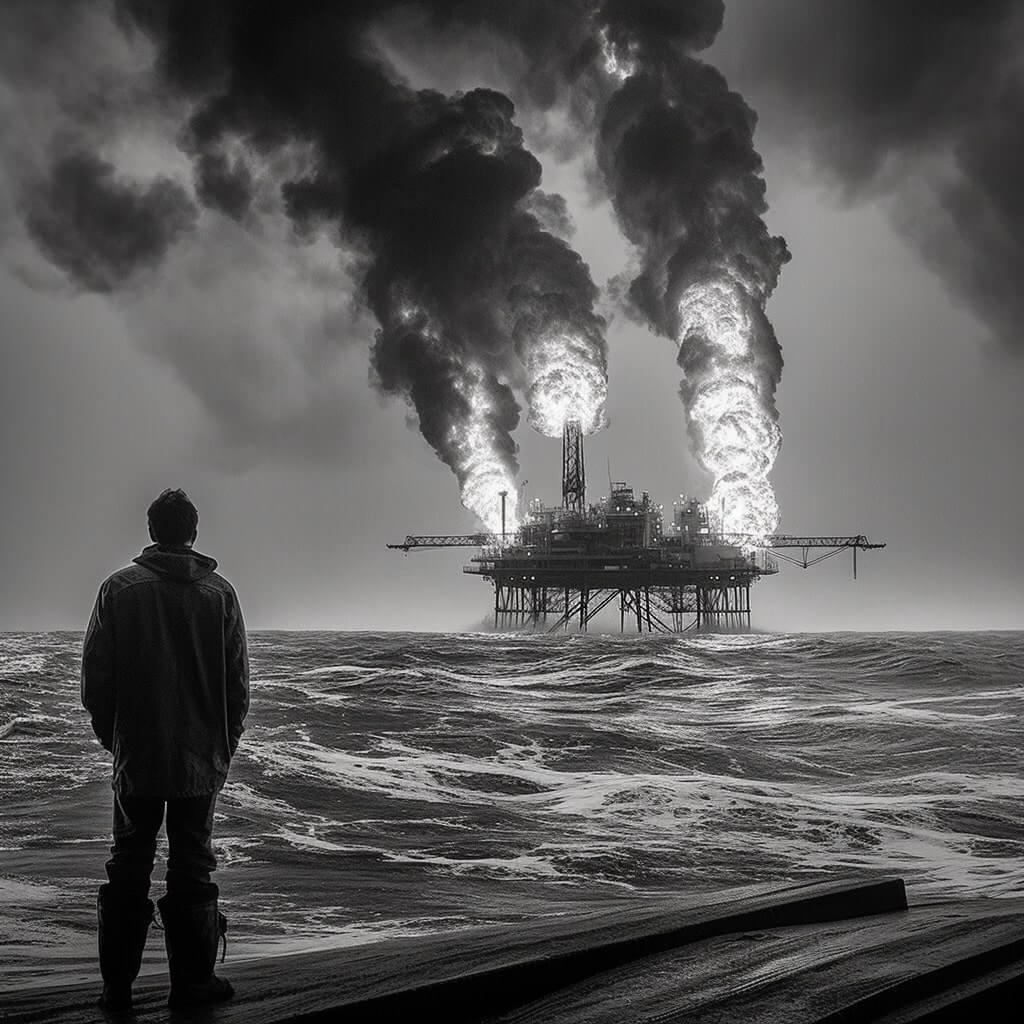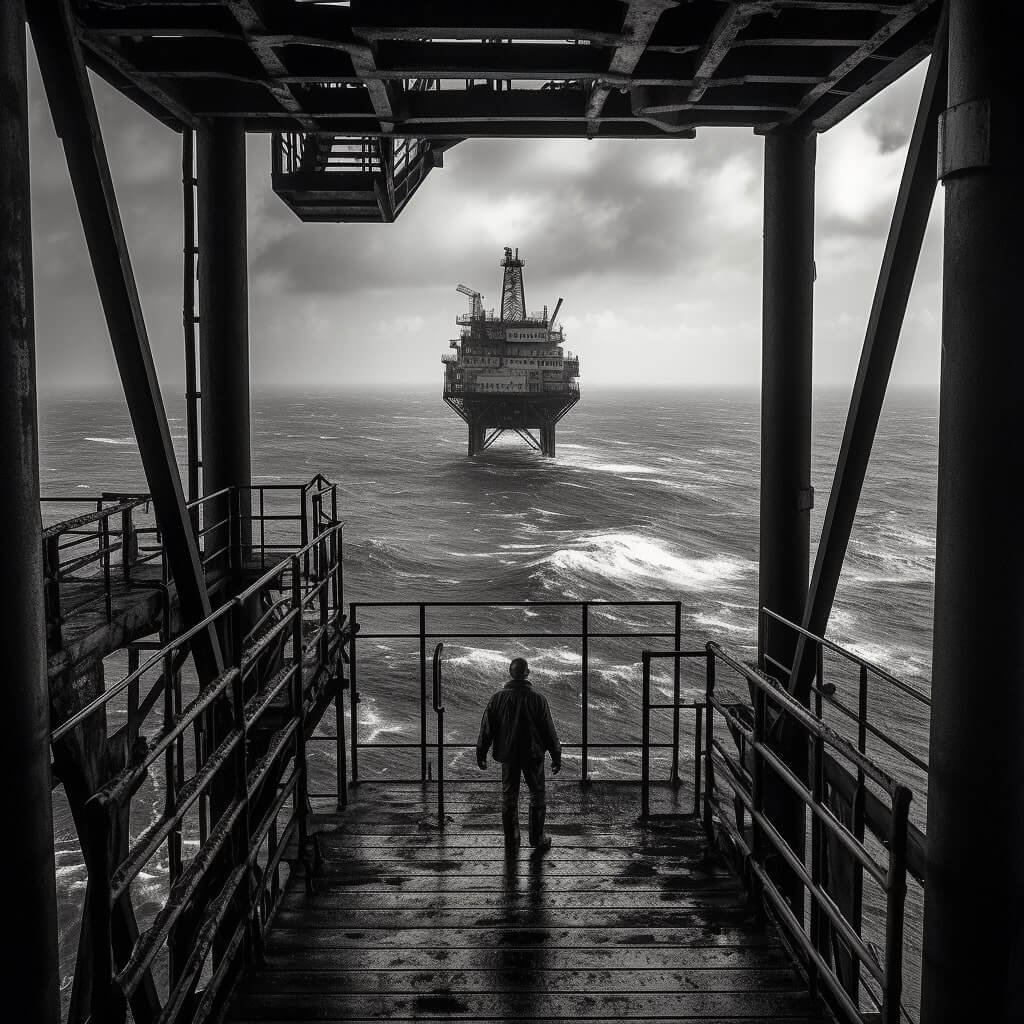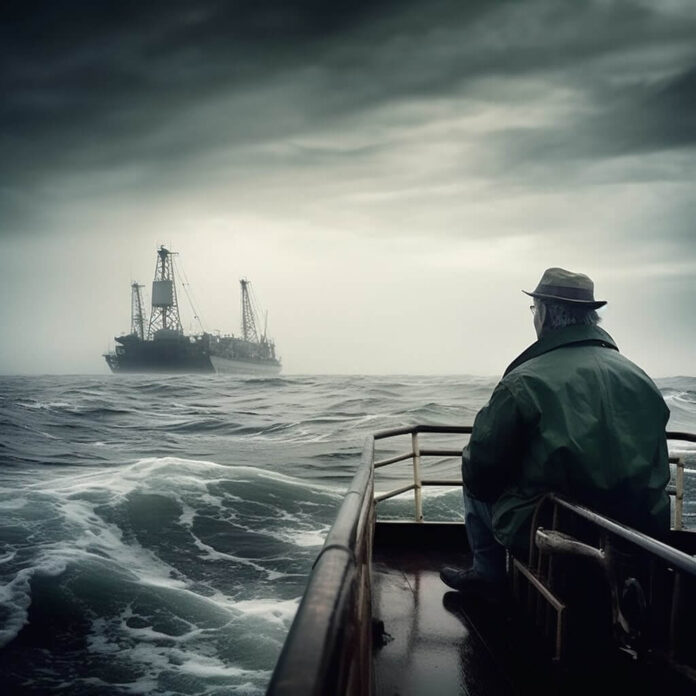The gas and oil industry is known for its high-risk work environments, with oil rig accidents often leading to severe injuries or even fatalities. When accidents happen, victims and their families may be unsure about their legal rights and options. An oilrig injury attorney can play a crucial role in providing the necessary support and representation to help secure fair compensation. In this article, we will discuss the various aspects of oiler accidents and how the right lawyer can make a difference in achieving justice for those affected.
The Hazards of Oil Rig Accidents
Accidents in the oil and gas industry are unfortunately common due to the dangerous nature of the work. From explosions to machinery malfunctions, mishaps on an oil platform can lead to life-altering injuries or even death. It is essential to understand the potential hazards faced by oilfield workers and the steps that can be taken to protect their rights when a casualty occurs.
Common Causes of Oil Rig Accidents
Oil drilling rig accidents can happen for various reasons, including negligence, defective equipment, or inadequate safety measures. Some of the most common causes of oilfield accidents include:
- Oil rig explosion, which can result from gas leaks or other hazardous conditions
- Machinery malfunctions, leading to workplace accidents
- Slip and fall accidents, caused by wet or slippery surfaces
- Human error, such as improper handling of equipment or failure to follow safety protocols

The Importance of an Oil Rig Injury Attorney
When an oilfield injury occurs, it is vital to have a skillful oil rig injury lawyer on your side. These lawyers specialize in oilfield accidents and understand the complexities of the industry and the laws that govern it. They can help navigate the often-confusing legal process, fighting for your rights and working to ensure that you receive the maximum compensation possible for your injuries.
What an Oil Rig Injury Lawyer Can Do for You
A skilled oil rig injury advocate can provide vital support to accident victims and their families. They can help by:
- Investigating the accident and determining who is at fault
- Identifying all potential sources of compensation, such as workers’ compensation or personal injury claims
- Negotiating with insurance companies to secure the best possible settlement
- Representing you in court, if necessary, to fight for your rights and ensure that justice is served
How to Choose the Right Oil Rig Accident Lawyer
With so many attorneys out there, it can be challenging to know who to trust with your case. Here are some tips for finding the right oil rig accident attorney for you:
- Look for experience: Choose an injury law with specific experience in handling oil rig misfortunes and personal injury cases. They should have a proven track record of success in representing clients like you.
- Prioritize communication: The best lawyer for your case will be one who is responsive, compassionate, and easy to communicate with. They should be willing to answer your questions and keep you updated on the progress of your case.
- Check references and reviews: Look for testimonials from previous clients or read online reviews to get a sense of the lawyer’s reputation and the experiences of others who have worked with them.
Achieving Justice with the Help of an Oil Rig Injury Attorney
The aftermath of an oil drill rig accident can be overwhelming, but having an experienced oilrig injury pleader on your side can make all the difference. They can help you navigate the legal process, fight for your rights, and ensure that you receive the maximum compensation possible for your injuries.
Taking the First Steps Toward Justice
If you or a loved one has been injured in a tragedy, don’t wait to seek legal representation. The sooner you consult with an oil field injury lawyer, the better your chances of securing fair compensation. An experienced lawyer can guide you through the process, protect your best interests. And help you achieve the justice you deserve.
Understanding the Types of Oil Rig Injuries
Injuries sustained in oil rig catastrophes can range from minor to severe, and may even result in fatalities. It is essential to understand the various types of injuries that can occur on an oil platform to seek appropriate medical care and legal representation. Some common oil rig injuries include:
- Burns and scalds, caused by explosions or contact with hot surfaces
- Crush injuries, resulting from heavy machinery or equipment
- Fractures and broken bones, due to falls or being struck by objects
- Traumatic brain injuries, which can occur from falls or being hit by equipment
- Spinal cord injuries, potentially leading to permanent paralysis
Compensation for Oil Rig Accident Victims
Victims of oil rig accidents may be entitled to various forms of compensation, depending on the nature and severity of their injuries.
An experienced counsel can help assess your case and determine what types of compensation you may be eligible for, which can include:
- Medical expenses, covering both current and future treatment costs
- Lost wages, to replace income lost while recovering from injuries
- Pain and suffering, for the physical and emotional distress caused by the catastrophe
- Loss of consortium, for the impact of the unfortunate incident on a victim’s relationship with their spouse or partner
- Wrongful death, in cases where a victim is killed on the job
The Role of Negligence in Oil Rig Accidents
In many oil rig accident cases, negligence plays a significant role. Employers, contractors, and other parties responsible for maintaining a safe work environment may be held liable if their carelessness led to tragedy. Some examples of negligence in oilrig accidents include:
- Inadequate safety training or supervision
- Failure to maintain equipment properly
- Violations of safety regulations or industry standards
- Insufficient emergency response plans
Proving Negligence in an Oil Rig Accident Case
To win your case and receive compensation, you and your law firm must prove that inattention contributed to the injury accident. This typically involves establishing the following elements:
- Duty of care: The party responsible for your safety (such as your employer or a contractor) had a legal obligation to provide a safe work environment.
- Breach of duty: The responsible party failed to meet their duty of care by taking inadequate precautions, neglecting safety protocols, or otherwise acting negligently.
- Causation: The breach of duty directly led to the accident, and your serious injuries were a foreseeable consequence of the negligent actions.
- Damages: You suffered actual harm as a result of the accident, such as physical injuries, medical expenses, or lost wages.

Seek Legal Help from Experienced Oil Rig Injury Attorneys
If you or a loved one has been injured in an oil rig accident, don’t hesitate to seek the help of an injury lawyer. They can provide invaluable guidance and representation, fighting to obtain maximum compensation and ensure that justice is served. With their expertise and support, you can focus on healing and moving forward with your life.
Schedule a Free Consultation with a Skilled Lawyer
Take the first step toward justice by scheduling a free consultation with a knowledgeable counselor. They can help evaluate your case, determine your eligibility for compensation, and provide guidance on the best course of action. Don’t wait – contact a lawyer today and begin your journey toward healing and justice.
Offshore Oil Rig Accidents: Unique Challenges and Legal Considerations
Offshore oil field accidents present unique challenges and legal considerations due to their remote locations and the complex interplay of various national and international laws. Injured offshore workers must navigate maritime law, the Jones Act, and other relevant regulations when seeking compensation. An injury lawyer may help you understand these complex legal issues and pursue a successful claim on your behalf.
What is the Jones Act and How Does it Apply to Oil Rig Workers?
The Jones Act, also known as the Merchant Marine Act of 1920, is a federal law that provides certain rights and protections to injured maritime workers, including oil rig workers. Under the Jones Act, seamen who are injured on the job due to their employer’s irresponsibility may be eligible to pursue a personal injury lawsuit for damages. To qualify as a seaman under the Jones Act, a worker must spend a significant portion of their time working on a vessel that is in navigation.
Protecting Oil Field Workers’ Rights and Safety
Oil field workers face many hazards on the job, and their rights and safety must be protected. Employers, contractors, and other parties responsible for maintaining a safe work environment must take appropriate steps to minimize the risk of accidents and ensure that workers are adequately trained and equipped to perform their duties safely.
Regulatory Bodies and Safety Standards for Oil Field Workers
Several regulatory bodies and organizations oversee the safety of oil field workers and enforce standards aimed at preventing problems and injuries. Some of these bodies and standards include:
- Occupational Safety and Health Administration (OSHA): OSHA is a federal agency that sets and enforces safety standards for various industries, including the oil and gas industry.
- Bureau of Safety and Environmental Enforcement (BSEE): BSEE is responsible for promoting safety, protecting the environment, and conserving resources in the Outer Continental Shelf (OCS) through regulatory oversight and enforcement.
- American Petroleum Institute (API): API is an industry trade organization that develops and maintains safety and operational standards for the oil and gas industry.
How an Oil Field Injury Attorney Can Help You Win Your Case
Navigating the complex legal landscape of drilling rig accident cases can be challenging, but a practiced lawyer can help and provide invaluable support and guidance. They can:
- Investigate the circumstances of your tragedy to determine the cause and identify the responsible parties.
- Gather evidence to prove negligence and establish liability.
- Coordinate with expert witnesses to provide testimony on technical and industry-specific issues.
- Calculate your damages, including medical expenses, lost wages, and pain and suffering.
- Negotiate a fair settlement with the responsible parties and their insurance companies, or represent you in court if necessary.
Don’t Wait – Contact an Oil Rig Injury Attorney Today
If you or a loved one has suffered an injury in a drilling rig tragedy, don’t delay in seeking legal help. The sooner you contact an experienced oil rig injury attorney, the better your chances of securing the maximum compensation possible. They can help you understand your rights, navigate the legal process, and fight to obtain justice for you and your family.
Note: The article provided here is for informational purposes only and should not be considered as legal advice. If you require legal assistance, it is recommended to consult with a qualified maritime injury attorney who can evaluate your specific situation and provide appropriate guidance based on the applicable laws and regulations.



